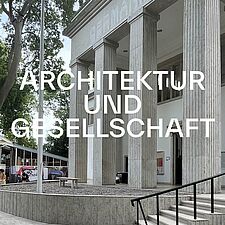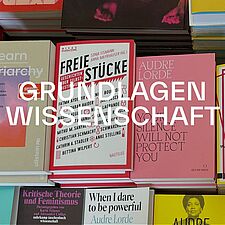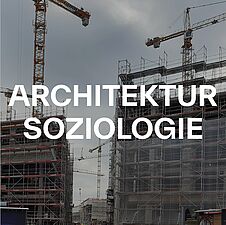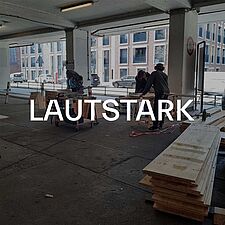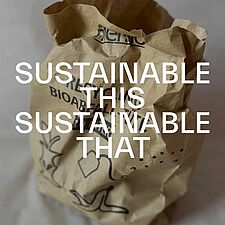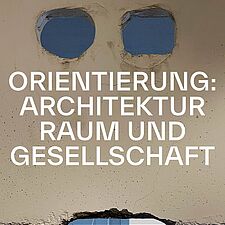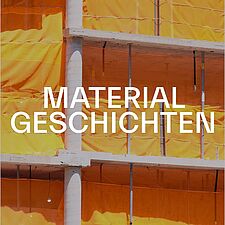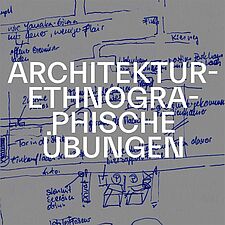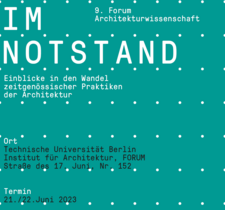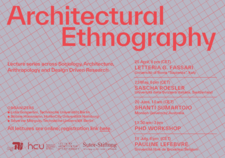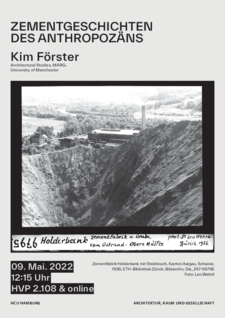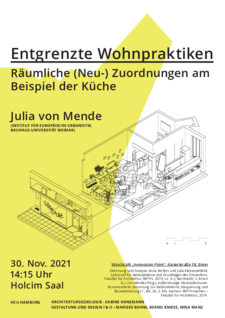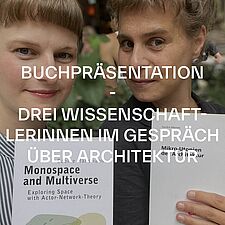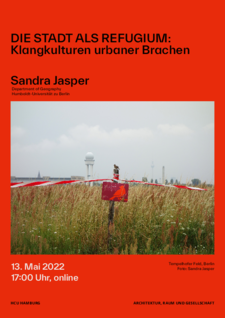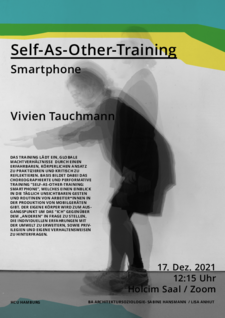The department architecture, space and society deals with the complex networks and social relations of architecture as well as the methods of making visible its production and transformation processes in everyday life. In doing so, it is always a matter of challenging a rigid object-oriented thinking in architecture and making anonymous groups, such as the users of buildings, visible as individual space-creating actors.
Team
Lisa Anhut | Lecturer
E-Mail: lisa.anhut(at)hcu-hamburg.de
Zainab Marvi | Lecturer
E-Mail: zainab.marvi(at)hcu-hamburg.de
Julian Müller | Academic Tutor
E-Mail: julian.mueller(at)hcu-hamburg.de
Weronika Yuan | Tutor
E-Mail: weronika.yuan(at)hcu-hamburg.de
Latest News
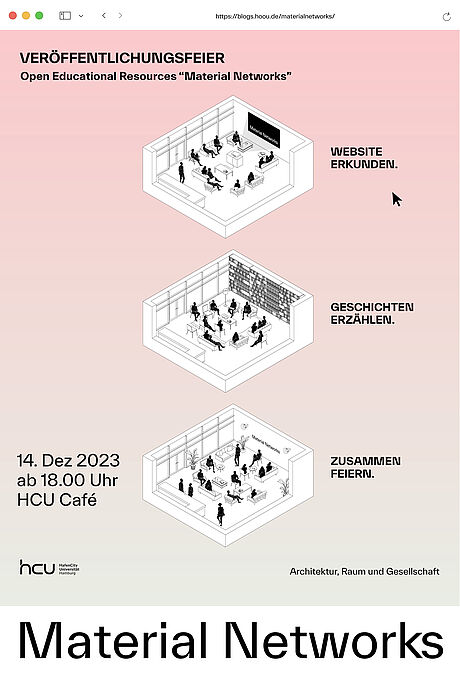
The OER "Material Networks" is online.
We would like to celebrate with a reading, drinks and music.
Thursday, December 14, 2023 starting at 6 pm - in the HCU Café
Material Networks is an interdisciplinary teaching project and online archive that tells stories, researched and written by students, about the everyday connections of materials in the construction process. Funded by the Hamburg Open Online University, the open educational resource provides important knowledge to support a change of mindset in times of resource scarcity and climate emergency. Due to the range of the material stories, which provide insights into the global resource budget and always relate to the lives of other people and species, there are also a variety of possible reference points for various disciplines and areas of interest.
>> On the same day, Larissa Fassler's lecture "Socio-Spatial Mapping: What Can We Learn About People, Places, and Systems through Acts of Observation and Mapping?" will take place at 5.00 p.m. in room 2.104 - a great overlap in terms of topic, which we would like to draw your attention to as well.
Research
HOOU project "Material Networks"
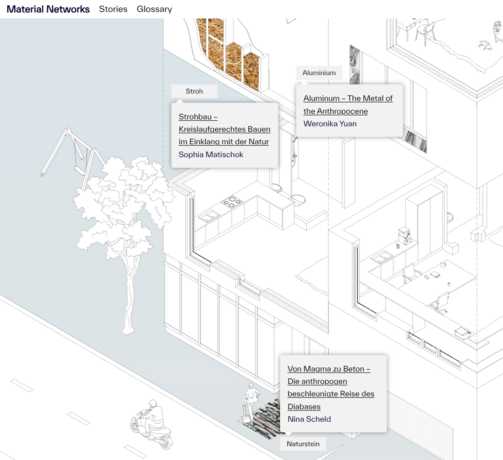
Over the past 60 years in particular, there has been a fundamental change in the relationship between humans and nature. Architecture has played a key role in this. In Germany, the construction and operation of buildings causes around 40% of CO₂ emissions, 52% of all waste and consumes 90% of mineral, non-renewable raw materials in the production of building materials. The immense energy consumption and high CO₂ emissions of buildings, construction site residues and non-recyclable demolition waste, as well as increasing social inequalities and social divisions, require a fundamental mindset change in the construction industry and architecture. As architects, we shape nature with our everyday design decisions. All building practices have an impact locally in the immediate neighborhood as well as globally in the earth system. While the general public has recently become aware of the complicated relationships in many areas of everyday life, for example with the clothing industry in Bangladesh, the interconnectedness of the construction industry, for example in the course of lime or sand extraction, is less recognized. However, in light of the climate emergency, such awareness is urgently needed in order to be able to take responsibility for spatial planning activities.
Material Networks is an interdisciplinary teaching project and online archive that tells stories, researched and written by students, about the everyday connections of materials in the construction process. Funded by the Hamburg Open Online University, the open educational resource provides important knowledge to support a change of mindset in times of resource scarcity and climate emergency. Due to the range of the material stories, which provide insights into the global resource budget and always relate to the lives of other people and species, there are also a variety of possible reference points for various disciplines and areas of interest.
https://hoou.de/materialnetworks/
Project start: January 2022
WAS Network

The scientific network Impact Research in Architecture and Urban Planning: Interdisciplinary Theories and Methods (German title: Wirkungsforschung in Architektur und Städtebau: Interdisziplinäre Theorien und Methoden (WAS)), funded by the German Research Foundation (DFG), has been launched. Over the next three years, the members will devote themselves to working on definitions for specifying the fields of impact of architectural and urban planning as well as the research methods and theories that are to be made productive for this purpose. More about our work can be found here (in German).
HafenCity University Hamburg
Studio 3.111.2
Tel.: +49 (0)40 42827-5366
sabine.hansmann(at)hcu-hamburg.de
Consultation hours during the lecture period:
Wednesday 11-12 a.m.
(after registration via email)

